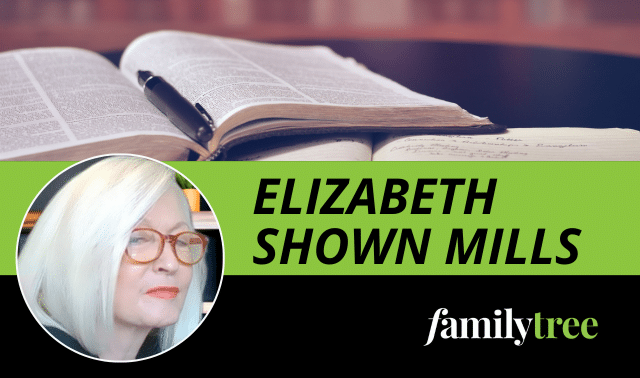Sign up for the Family Tree Newsletter! Plus, you’ll receive our 10 Essential Genealogy Research Forms PDF as a special thank you.
Get Your Free Genealogy Forms
"*" indicates required fields

How many ancestors do you have? It doesn’t seem like a difficult question, yet genealogists have been attempting to answer it for years. You should be able to double the number of ancestors in each generation (two parents, four grandparents and so on) for 1,024 ancestors in 10 generations, right? Go back 40 or 50 generations, though, and what happens? The formula results in more than a trillion ancestors. That’s more than the number of people who’ve ever lived! What gives? The explanation is pedigree collapse.
Your Shrinking Family Tree
Rutgers University professor Robin Fox estimates that 80 percent of historical marriages have taken place between second or closer cousins. This causes the same folks to occupy multiple spots on pedigree charts. In turn, your family tree starts shrinking once you’ve gone back so many generations.
This genealogical shrinkage makes you cousins with just about everyone. English genealogist, physicist and computer programmer Brian Pears puts this into perspective. He states that, “If every single marriage was between second cousins, then 30 generations ago [residents of Britain] would all have needed exactly 4,356,616 ancestors—still more than the English population at the time.”
ADVERTISEMENT
Common Ancestors
In 1215, an estimated 2.5 million people lived in England. Pears concludes that each of England’s residents in 1300 was an ancestor to nearly every modern Brit, and scholarly research backs him up. In a 1980 Genealogical Demography article “Ancestors at the Norman Conquest,” demographer Kenneth Wachter shares some interesting facts. He calculates that out of the 1.11 million residents of England at the Norman conquest in 1066, about 86 percent are ancestors to all current residents of England.
In a 1999 paper, Yale University statistician Joseph Chang used a mathematical model to show how all modern Europeans, except recent transplants, have a common ancestor who lived about 1400. Go back to 1000, and 20 percent of adult Europeans alive then have no descendants today. However, each of the remaining 80 percent is an ancestor of every European alive today. That’s a lot of cousins to look for!
Related Reads
A version of this article appeared in the March 2011 issue of Family Tree Magazine.
ADVERTISEMENT
ADVERTISEMENT







